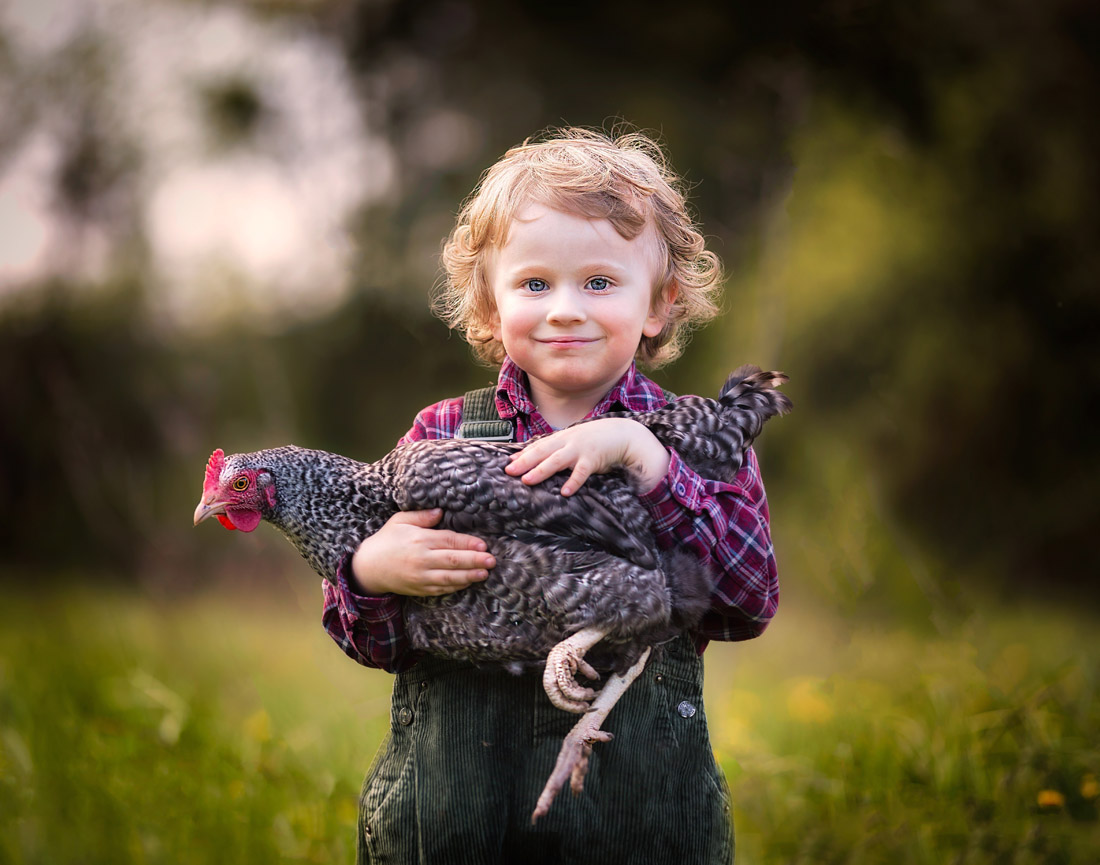Written by Claudine Wilkins, founder of Animal Law Source
You want to add a pet to your family, but a dog or cat just won’t do. What’s left in the “small” animal realm?
A lot actually, including hamsters, rats, guinea pigs, ferrets, rabbits, chickens, parrots, iguanas, monitors, snakes, mini pigs, goats, pocket pets (sugar gliders), monkeys and more. Many of these animals are hard to resist. They’re cute, unique and fun to show off.
But don’t make a bad decision based on your desires or impulse. Think about what that animal will need and whether laws will play a part in ownership.
First, find out if it is it legal to own your desired pet in Georgia. Check the covenants with your homeowners association as well as the local county laws. A special permit or training might be required. And some exotic pets may require special medical testing.
If you certain owning an exotic animal is for you, know ownership laws vary based on state, city and county. Check out the specifics of your area at the Georgia Department of Natural Resources (DNR) Wildlife Resources division, which has rules that address ownership of many exotic animals.
DNR’s special permits division ensures compliance. For example, sugar gliders are legal as pets if the owner can provide documentation that the animal originated from a USDA-licensed breeder, and the owner is in strict compliance with the DNR.
Breeding and selling pot-bellied pigs require a pet dealer’s license. These animals also have to be tested for pseudorabies and brucellosis. Check with your homeowners insurance to ensure your pet is covered. Some insurance companies may consider your pet inherently dangerous and will not provide coverage should the pet cause harm or damage.
We can buy everything we need at the local grocery, but being able to supply your own food from backyard chickens that happen to be a joy to watch and raise in your own backyard for some, it is a true comfort. Whether you can keep chickens depends in which county you reside. The Georgia Department of Agriculture does not have rules regarding the ownership of backyard chickens, buffalo or llamas; those are all domestic animals. But before you acquire chickens, check with your county and city to ensure you are in full compliance with all rules, regulations, zoning and permit requirements.
Even if chickens are allowed where you live, certain conditions may apply, such as the number you can have and the size and shape of the coop. Many communities do not allow roosters because of noise restrictions, but your hen does not need a noisy rooster to lay eggs, which is a common misconception.
Be familiar with any nuisance ordinances. They can affect your keeping of chickens that may contribute to noise, odor, conditions that attract rodents and other pests, and other public health concerns. Ensure that you are complying with your own residential restrictive covenants or lease restrictions, if you rent.
According to the Fulton County Animal Ordinance, you can have up to 75 chickens (or turkeys, geese, ducks, and pigeons) as long as you keep them in good living conditions and away from occupied buildings other than your own home. Their enclosures must be clean and sanitary, and must allow for at least four feet of room for each animal.
Cobb County’s ordinance, on the other hand, is much more restrictive. Chickens are allowed only in specific districts. You may not have roosters, are allowed only four hens and your lot must be at least 15,000 square feet. The minimum area for each chicken is 25 square feet. There are also requirements for coops that must have a coop building permit. It is always best to contact someone in the county and not rely on a website, as these local laws can change before they are posted. (For more information on other counties, see sidebar.)
Many diseases that affect people can be carried by healthy animals. Some examples include rabies, tularemia, plague, salmonellosis and others. Vaccines against these diseases are not approved for use in wild animals. Some animals are very long lived and require extensive care. Monkeys, for example, can survive more than 40 years. Consider who would care for the animal should something happen to you. And who will pet sit that pot-bellied pig or boa constrictor when you need to travel?
Before you buy, research the seller or organization to ensure they are reputable and licensed, if required. Then search out a veterinarian who specializes in exotic pets and the type of animal you have in mind. Some exotic pets require significant care time and can tax an owner’s patience as well as daily schedule. What if your exotic pet is nocturnal or has a propensity to bite? Do you have the house or yard, the proper container or equipment to accommodate the animal? And how will you handle behavioral changes your pet will go through as it matures?
Exotic animals may also be considerably more expensive that then average dog or cat. Considering how to cover the pet’s upkeep over the years is important. And have a plan in case the pet doesn’t work out; speak to exotic pet rescues to see why people give up on those pets.
Sadly, one of the most abandoned pets is rabbits. Cute as bunnies, rabbits are often dumped outside as the owner assumes it can live in the wild and forage for food. Instead, these once caged rabbits either die from starvation, succumb to the elements or are eaten by other animals. If they are lucky, they may end up in place akin to the Georgia Rabbit House Society, an all-volunteer, nonprofit rescue organization serving the metro Atlanta area and beyond. Since Georgia has very few such rescues, Manager Jennifer McGee says the nonprofit is constantly overflowing with rabbits who were once someone’s cute bunny.
Copyrighted by Claudine Wilkins, Founder Animal Law Source (2014), Past Chair of the Animal Law Section to the Georgia Bar, cwilkins@animallawsource.org, 770-356-9770, www.animallawsource.org.
For additional questions, please contact: Animal Law Source at info@animallawsource.org.
Visit AnimalLawSource.org for a sample petition and order.
Sample of regulations for backyard chickens
Sample of regulations for backyard chickens — allowed with restrictions: 1) max six chickens, no roosters; 2) noncommercial use only; 3) covered enclosure must be provided; 4) houses/coops/ enclosures must be at least 50 feet from property line and at least 20 feet from dwelling; 5) structures greater than 25 feet must comply with accessory structure standards; 6) any fencing must comply with fencing standards.
City of Chamblee — allowed with restrictions: 1) max eight chickens; 2) roosters prohibited; 3) structures housing chickens must be 10 feet from any residence on adjacent lot; 4) chickens must be confined and remain on property at all times.
Coweta County — allowed with restrictions: 1) all related accessory buildings, pens or corrals, for housing or confining animals, or for storing feed or equipment, or for similar purposes shall be located at least 100 feet from all property lines and 200 feet from any existing off-site residential dwelling; 2) the lot/parcel shall be of adequate size to accommodate the 200-foot setback; 3) the grazing area shall be maintained in viable grasses and herbages to reduce erosion and prevent unsanitary conditions. The grazing area is the area of the parcel/lot wherein livestock are confined for the purpose of feeding on growing grasses and herbages; 4) the lot/parcel shall comply with any local, state, federal or other laws regarding livestock.
Gwinnett County – allowed with restrictions: 1) minimum 10,500-square-foot lot size; 2) enclosed yard or six-sided pen required; 3) pen area must be 10 square foot per chicken; 4) chickens must be at least 20 feet from any property line and 50 feet from dwellings other than owner’s; 5) structures housing chickens must be in rear yard; 6) roosters prohibited; 7) only for pets or egg laying — slaughter prohibited; 8) must be kept in sanitary conditions and not create a nuisance; 9) number of chickens based on lot size.
City of Marietta — allowed with 11 restrictions (no roosters; no more than four chickens; must be in fenced area; only for pets or egg production, not slaughter; minimum 15,000-square-foot lot; lot must have occupied residence.
Paulding County — allowed with restrictions: 1) shall not cause a nuisance; 2) prohibited from slaughter and/or breeding; 3) must be in a coop no larger than 100 square feet and enclosed on all sides; 4) coops must be 100 feet from property line adjacent to a road and 45 feet from other property lines; 5) coop must be in back/rear yard and minimum 45 feet from dwelling; 6) free range prohibited; 7) max five chickens.
City of Winder — chickens in the city other than agricultural zones are determined to be a nuisance and prohibited.
Source: Various city/county websites





